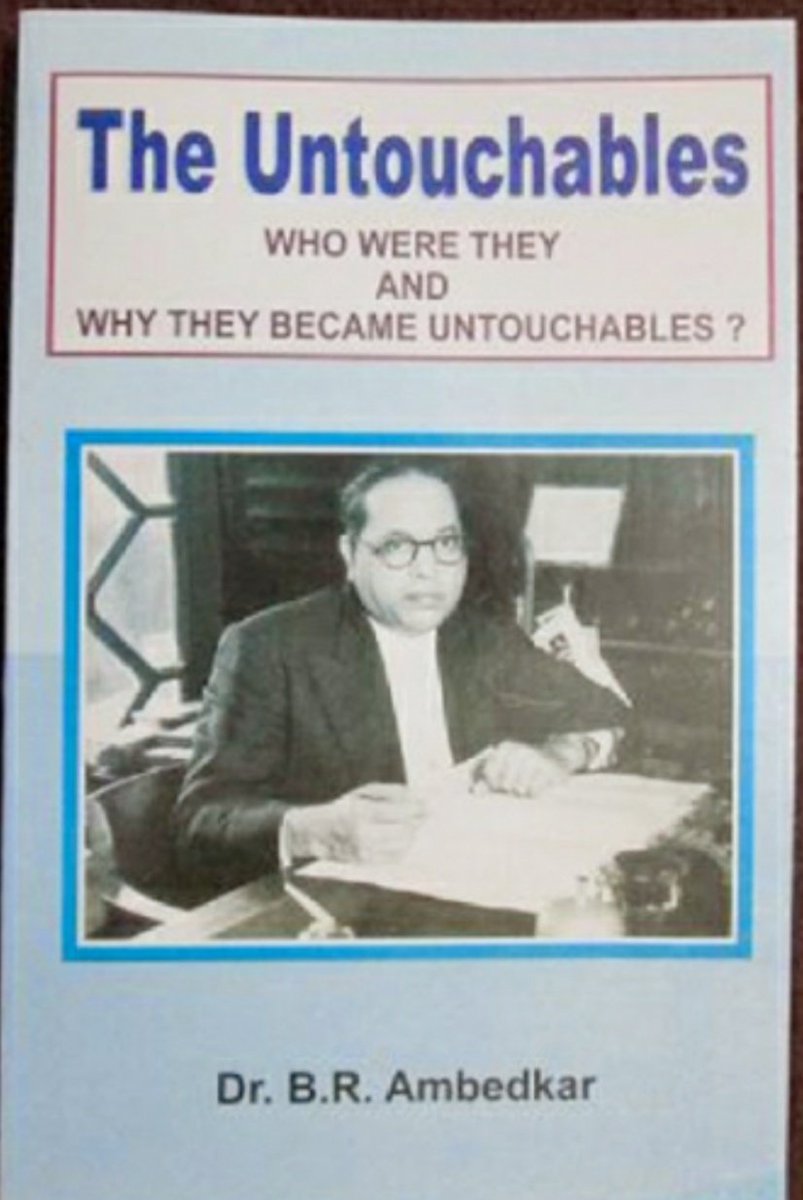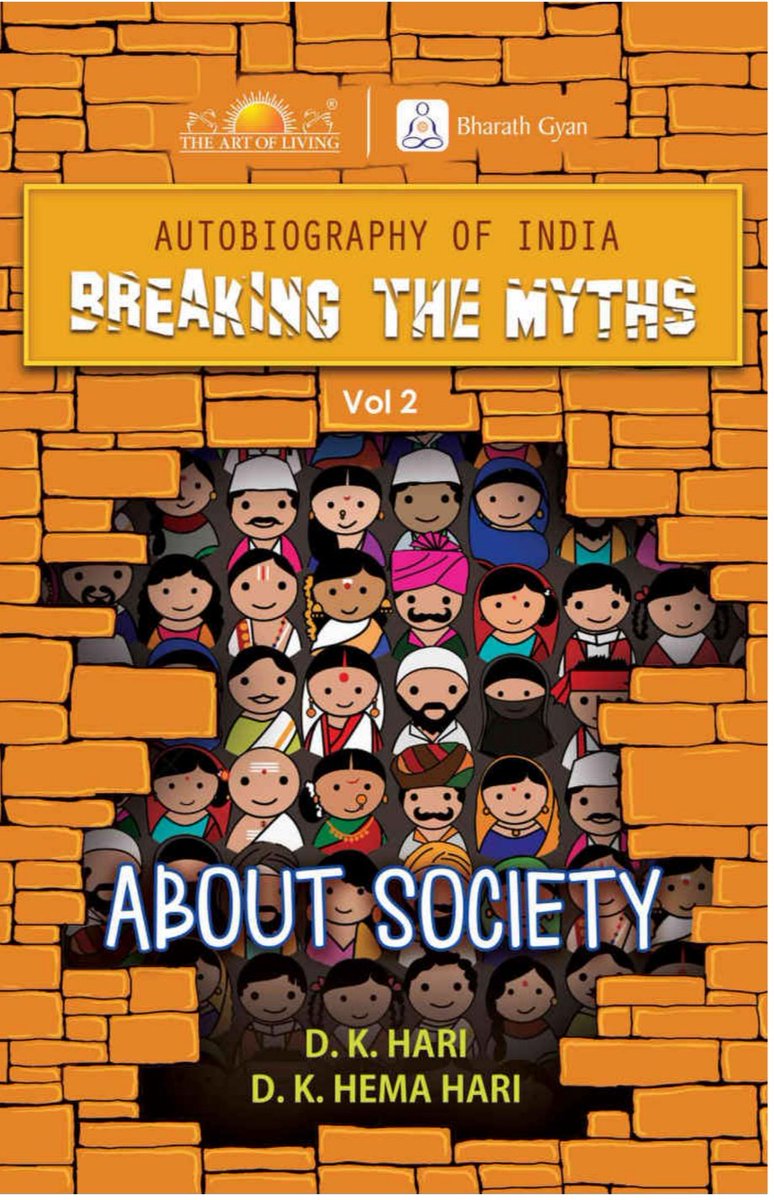How did the concept of untouchability become prevalent in India?
In the Indian tradition and social norm, such tribes who had to be kept in isolation for their protection were known as the panchama, 5th order, besides the 4 Varna order.
(Long Thread)
In the Indian tradition and social norm, such tribes who had to be kept in isolation for their protection were known as the panchama, 5th order, besides the 4 Varna order.
(Long Thread)
Excluding - As a trend of excluding and keeping away the despicable.
Exclusive - As a system of “Apartness” to keep certain people exclusive and protected.
Exclusive - As a system of “Apartness” to keep certain people exclusive and protected.
The Government of India applies this law for the isolation of the Jarawa tribes in Andaman today. This has been sanctioned by the Supreme Court of India as well.
The tribals were not poor, but instead were rich, for all the forests of the land were theirs by right. They were Vana Vasi, Vana meaning forest and Vasi, dwellers. They were forest dwellers and by nature were the guardians of the forest, their own dwelling.
All the rich mines in the forests were regarded theirs and maintained sustainably by them. The forests in turn, looked after their well-being by continuously giving them produce.
Nagara Vasi (city dweller), Grama Vasi (village dweller) and Vana Vasi (forest dweller), all three have belonged ethnically to this land, from time immemorial and each have had their respective places in the civilization.
The British, wherever they went, tried to take control of the forests and their natural wealth directly under their rule.
One of the classic examples elsewhere, under British rule is a case in Australia.
The Terra Nullius Rule
One of the classic examples elsewhere, under British rule is a case in Australia.
The Terra Nullius Rule
When the British landed in Australia, they saw that the whole continent was occupied only by tribals / aborigines . The tribals, not being town dwellers, were not in the practice of owning lands. In the eyes of the British, this was as good as not occupying the land.
The British therefore summarily declared the whole island of Australia as good as being an unoccupied land and classifying it as “Terra Nullius”, took over the entire continent of Australia.
Infact the term “ Porambokku” used even today, for vacant lands in the outskirts of a village, town or city in Tamil Nadu comes from Pembroke, the name of Lord Pembroke who stated that, any land that belonged to no one, would belong to the Government.
The areas in the outskirts of villages which were kept intentionally vacant, to serve as catchment areas for lakes and other water bodies, were the first ones to be taken over by the then Government , followed by fields left fallow due to nonviable farming under British rule.
The British, who were interested in the Timber, Tigers and Treasures from the forests of India, found the Vana Vasi to be a hinderance.
FOREST ACT was introduced.
FOREST ACT was introduced.
With the introduction of the Forest Act by the British government, the Vana Vasi were made aliens in their own dwellings, the forests. Without their consent, they were all nationalized, extracted at will and made to join the city or village order, without the right background.
Many of those, who could not find any suitable vocation or fit, still roam around today as gypsies, banjara, nari kurava etc. selling beads and other oddities that they can manage to sneak out from the forests.
Some, who managed to pick up some menial jobs, became included among the untouchables due to their un-city like manners or way of living.
From all this, we see that there have been many factors that have led to Untouchability over centuries, such as,
From all this, we see that there have been many factors that have led to Untouchability over centuries, such as,
Planned alienation - by “civil”society itself, to preserve some strains of human genes in tribals, who in turn managed forest diversity
Unpleasant Professions –by isolation imposed by the practised vocation like in the case of professions such as undertakers in cemetries, executioners, tanners, blacksmiths, washer-men etc. which need distancing from habitation limits
Imposed poverty –by the avaricious policies of colonizers, which in turn led to unhygienic living conditions of the new class of downtrodden
Food habits –by the consumption of food which was banned, for example meat-sellers and beef-eaters, since cow was an integral resource of an agrarian society
Non-conformance to civil code –by the practice of acts considered “immoral”and “illegal”for a bounded civil society such as banned sexual, marital, ritual, vocational, earning practices.
"The tribals who came to live in cities were literally “uncivilized” as we have seen from the essence of the word “civilized”. Coming from the forest where they had been hunters and food gatherers, the form of meat in the cities, closest to their hunted meat in forest,
would be cow’s meat. Beef-eating, though shunned by the civilized city dwellers, would have become a natural food habit for them." -
Dr.Ambedkar - The Untouchables.
Dr.Ambedkar - The Untouchables.

 Read on Twitter
Read on Twitter




